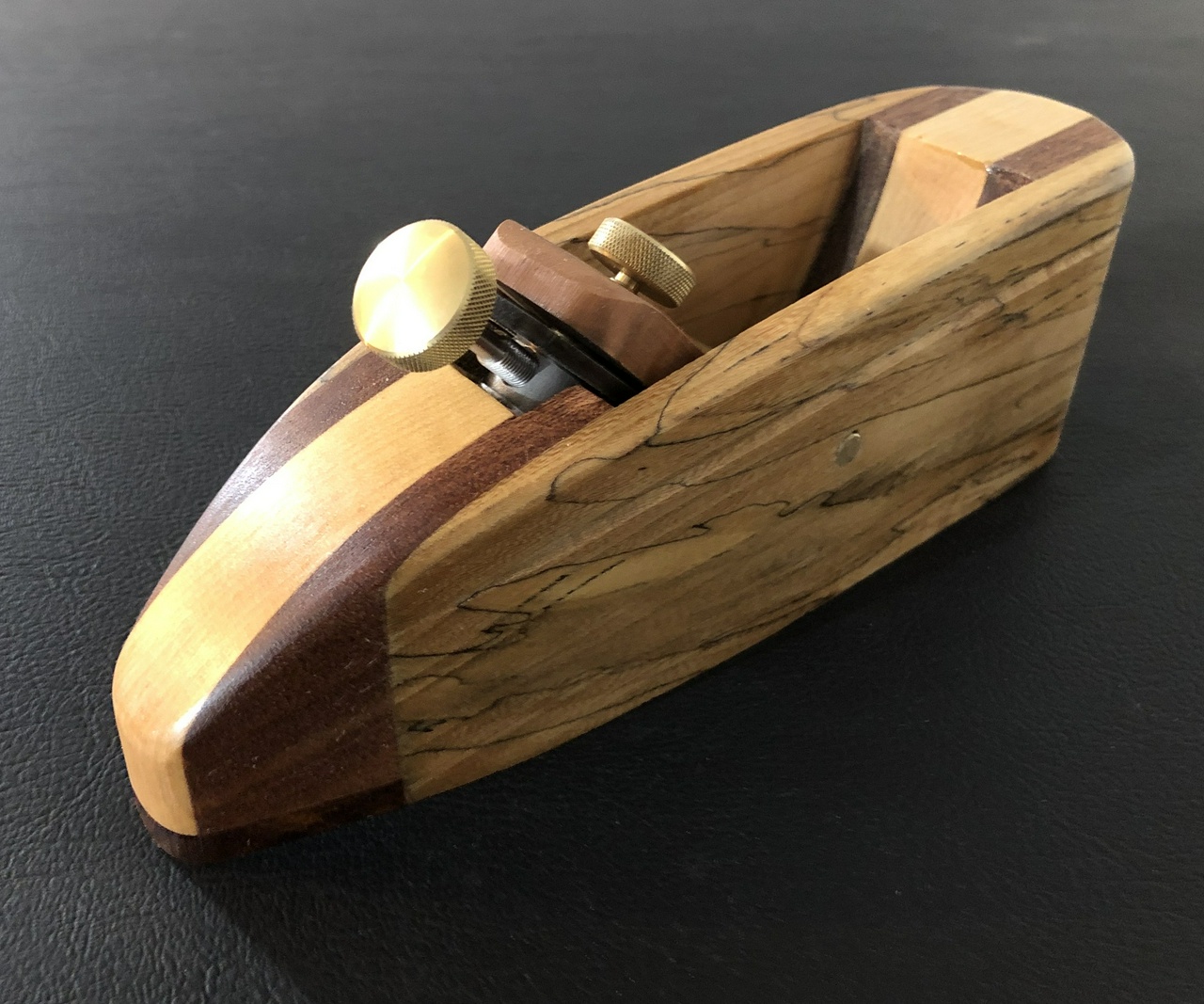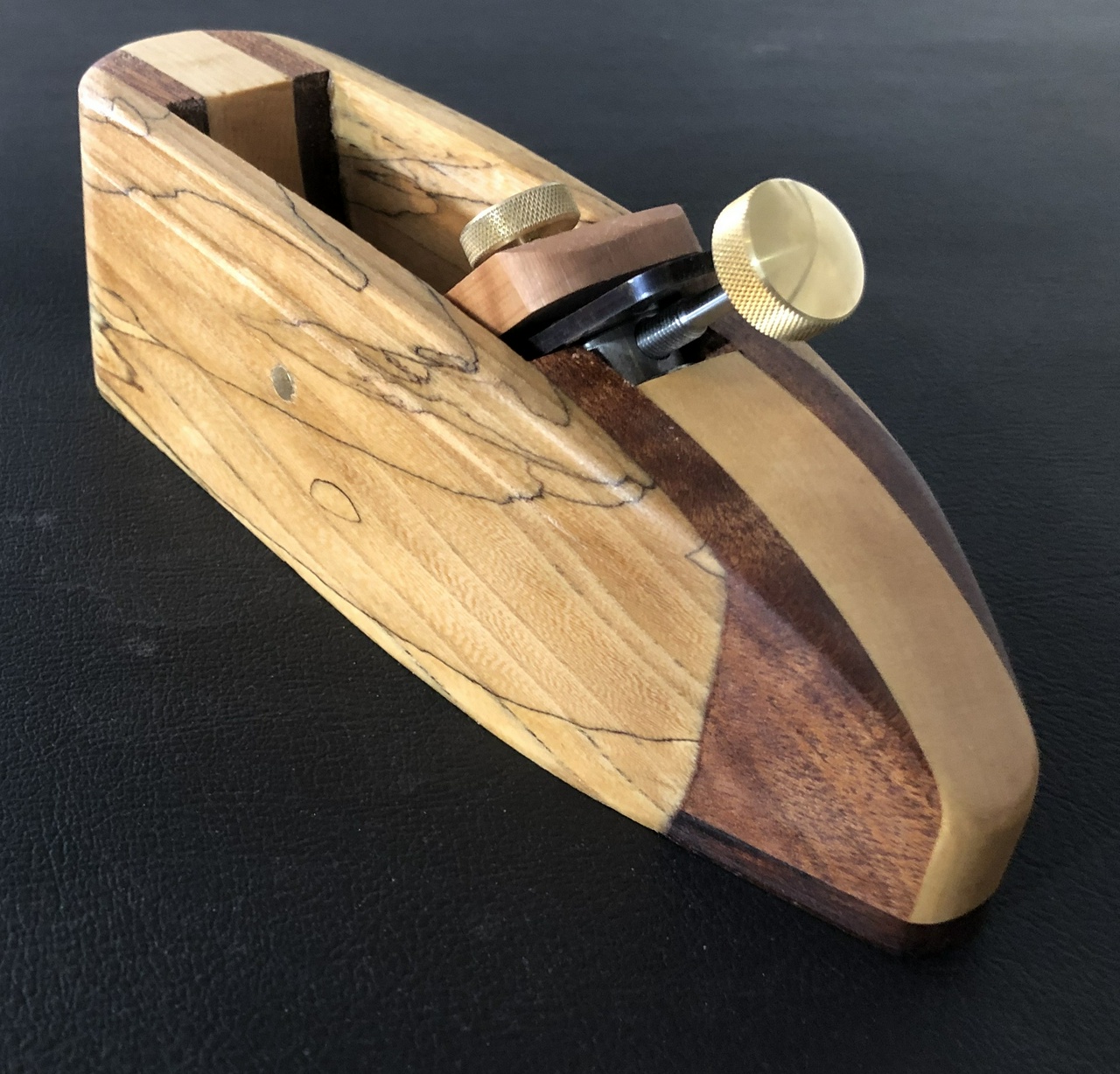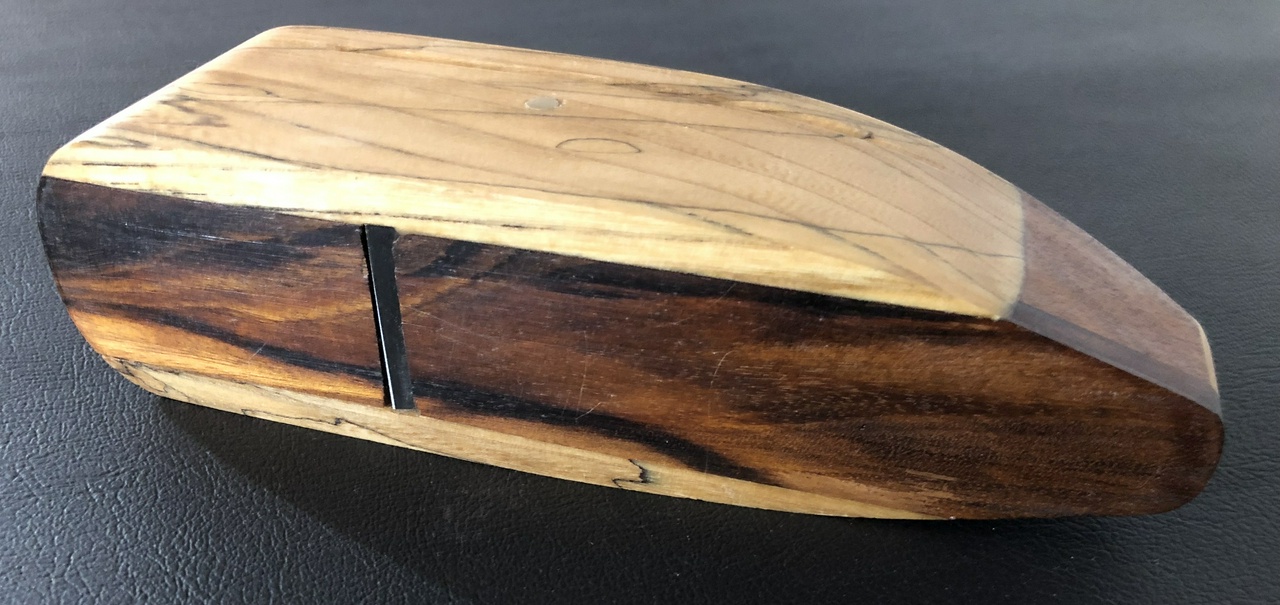Stabilizing Wood – #6 Spalted Elm and Dyes
I did some more experimenting the weekend of January 20, 2019.
First up was some spalted elm for the surprise swap. I think I've got some stuff I can use!

Next some rotted oak. We were interested to see just how spongy the wood could be and still be worth stabilizing. I'm not sure it's worth it, but I'm glad I tried it.

Then some spalted sweetgum. This shows a lot of promise, and I'm going to need to get a bunch more of it, I think.

And then the dyed wood. They are, top to bottom, left column: spalted oak, mahogany (2x), spalted elm (2x), spalted sweet gum and spalted maple; then right column: rock maple, spalted sweet gum, and apple.

I think I've got a couple in there that might be worth selling. I'm going to talk to a few other folks, and work on securing a bunch more of the spalted sweetgum, since I really like the way that came out. I also found it interesting that the mahogany looks lighter after stabilizing it with black dyed cactus juice. I've got some furniture that's made from pore-filled mahogany, and this kind of has that look to it. And the apple (I used sap wood, rather than heart wood) was just kind of blah. I wasn't sure what I was expecting, but now I know.
And here are a few shots of individual pieces of wood. First, un-dyed spalted elm, blue-dyed spalted sweet gum, red and black dyed maple, and blue and black oak.

The other side of the blue-dyed sweet-gum:

Follow-up: the spalted elm ended up making a hand-plane which got sent to another woodworker in a swap.



Discuss...
Reply to this in the fediverse: @davepolaschek@writing.exchange